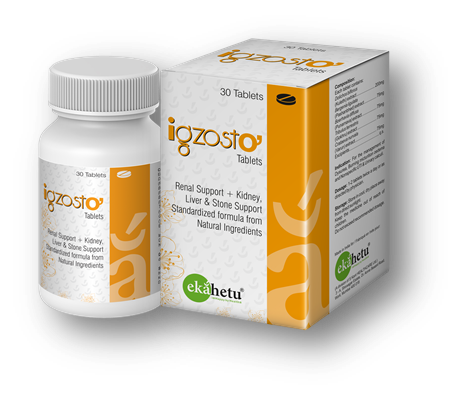Dolichos biflorusClinical investigations have been shown that out of fifteen cases urinary calculi, nine patients passed their stones within 8-10 days of treatment with D. biflorus. Spontaneous passage of stones was common depending upon the size, site and mobility of the calculus. During clinical trial, the aqueous extract on patients with various disorders was noted to increase the urine output. The various constituents of D. biflorus probably help in changing the micro and macro environment of CaOx stones, leading to decreased recurrence of calculi.
Bergenia ligulataB. ligulata is widely used plant in South Asia, mainly India, as a traditional medicine for treatment of urolithiasis. The scientific studies indicate the anti-urolithic activity in B. ligulata mediated possibly through CaC(2)O(4) crystal inhibition, diuretic, hypermagneseuric and antioxidant effects and this study rationalizes its medicinal use in urolithiasis.
Boerhavia diffusaB. diffusa is a plant of rasayana category as per ayurvedic claims. It is reported to possess antiaging, disease prevention, and life strengthening activities which hold enormous influence in disease burden such as urolithiasis. The in vivo study indicates that the anti-urolithic activity of B. diffusa extract possibly mediated through inhibition of CaOx crystallization, diuresis and hypo-oxaluria justify its prophylactic use in urolithiasis. Researchers have also studied the antioxidant potential of the extract in urinary stones by means of inhibition of oxidative trauma and kidney cell damage and observed decrease in calcium oxalate deposition. It is a well-known diuretic and renoprotective herb and studies approving diuretic and kidney stone dissolving properties of the extracts along with the isolation of a diuretic alkaloid, punarnavine, describe the use of B. diffusa in urinary disorders.
Tribulus terrestrisThe studies show that administration of T. terrestris extract brings about changes in the levels of the risk factors, which cause or activate the urinary stone formation. The observation suggests that after the administration of T. terrestris extract, the levels of uric acid, oxalate, calcium, proteins and glycosaminoglycans in serum and urine changed significantly, while the citrate, inorganic phosphate and urine volume were not significantly affected. Therefore the T. terrestris extract may be useful in the treatment of urolithiasis.
Crataeva nurvalaC. nurvala is helpful in reducing the recurrence of urolithiasis. Experimentally, C. nurvula extract prevents stone formation due to the anti-lithogenic activity and the anti-crystallization property. The herb decreases the urinary pH toward acidic. The diuretic action of this herb attributes the metabolic correction of the serum and urinary electrolyte levels in experimentally induced urolithiasis in albino rats.

